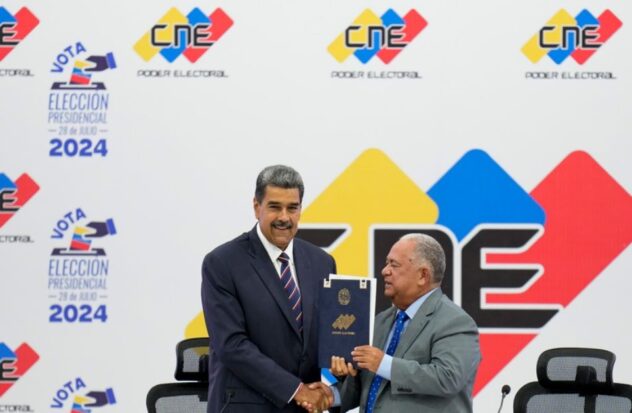CARACAS.- The latest fraud by the Nicolás Maduro dictatorship, which, with the National Electoral Council at its disposal, announced that the tyrant would remain in power after obtaining a questionable 51.2% of the votes, is the latest episode in a series of fraudulent elections that have marked more than ten years of destabilization in Venezuela.
Since Maduro took power in 2013, in elections that Chavismo is also accused of stealing, the country has witnessed electoral processes riddled with irregularities and systematic repression.
Fraud electoral since 2013
On April 14, 2013, Maduro took over the presidency after the death of Hugo Chávez, in an election characterized by opacity and favoritism toward the then vice president. Maduro’s narrow victory, with just 50.62% of the votes, was received with skepticism.
Henrique Capriles, his main opponent, denounced irregularities and demanded an audit, but his efforts were systematically blocked by a Supreme Court subservient to Maduro. During his first term, violent repression of demonstrations and the growing concentration of power in the hands of the dictator deepened the crisis, while the international community imposed sanctions.
The fraud of that time started the wave of rejection of Maduro. In 2014, the first street protests against the dictator took place, who used the armed forces to repress and leave at least 71 dead, among them the young student Bassil Alejandro Da Costa Frías.
Maduro followed and the people, once again tired, took to the streets in 2017. The dictatorship once again used the armed forces to attack the people, causing at least 127 to 157 deaths.
Fraudulent re-election in 2018
The presidential election of May 2018 became a symbol of fraud when Maduro was re-elected in a process in which the opposition decided not to participate, lacking the minimum guarantees.
Following the election, Maduro’s “victory” was rejected by more than 60 countries. The US ambassador to Venezuela, James Story, along with a growing number of nations, questioned the legitimacy of the results, leading the US to impose an oil embargo.
The repression of the opposition and Maduro’s authoritarian maneuvers were consolidated with the failed attempt at a military uprising in favor of Juan Guaidó at the end of April 2019.
Control of Parliament
In December 2020, Maduro took control of Parliament in an “election” that saw a record 69% abstention rate and was widely discredited by the international community. The opposition ended Guaidó’s interim government at the end of 2022, without achieving a clear consensus on the future of the opposition leadership.
Despite signs of a change of stance by the United States, which still does not recognize Maduro as the legitimate president, the crisis continues.
Exclusion of Maria Corina Machado
As the July 28, 2024 presidential election approached, Maduro maneuvered to exclude María Corina Machado, the charismatic and popular opposition figure, accusing her of corruption in a move clearly designed to neutralize his main competitor. Low-profile diplomat Edmundo González Urrutia was installed as her replacement, facing a Maduro seeking a third term in a clearly rigged process.
The official results of the latest election, which once again favour Maduro, have been roundly rejected by the opposition and criticised by numerous countries, including the United States and the European Union. This episode underlines the persistence of a regime that has made fraud and repression its modus operandi, perpetuating a political and humanitarian crisis in Venezuela.
Source: With information from AFP


